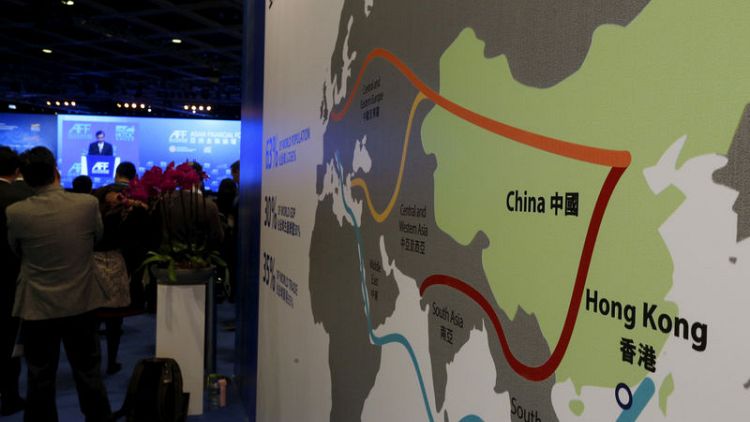MILAN (Reuters) - Italy will protect its strategic infrastructure such as telecoms and avoid transferring key know-how as part of a planned agreement with China, Prime Minister Giuseppe Conte said in an interview published on Wednesday.
Italy is studying mechanisms to monitor commercial accords signed under the "Belt and Road" memorandum agreement with China, as well as other measures to protect "strategic activities and national interests," Conte told the Corriere della Sera newspaper.
In separate comments to Corriere, a spokesman for the White House's group of national security advisers, Garrett Marquis, warned the accord was "a political hazard."
"In some well documented instances China has been able to obtain as collateral guarantees strategic assets of countries that were not able to repay their debts," Marquis was quoted as saying.
China has denied its Belt and Road projects, which fund and build global transport and trade links in more than 60 countries, are a debt trap.
Italy's public debt runs at more than 1.3 times its domestic output and is the world's third-largest in absolute terms.
Corriere reported that the White House had warned Italy it would no longer be able to share sensitive information, such as intelligence reports, if the Rome government were to buy equipment from China's Huawei.
The United States has urged allies not to use products made by Huawei, the world's biggest maker of telecoms equipment, saying they could enable Chinese state espionage.
No evidence has been produced publicly and Huawei has repeatedly denied the allegations. But several Western countries have restricted, or are considering restricting, the company's access to their markets, fuelling speculation of U.S. pressure.
The newspaper also said the United States would stop sending sensitive goods to the Italian ports of Genoa and Trieste if China was allowed to build infrastructure there.
Ports are one of the infrastructure cooperation areas included in the Belt and Road memorandum with Italy.
(Reporting by Valentina Za, editing by Silvia Aloisi and Darren Schuettler)
